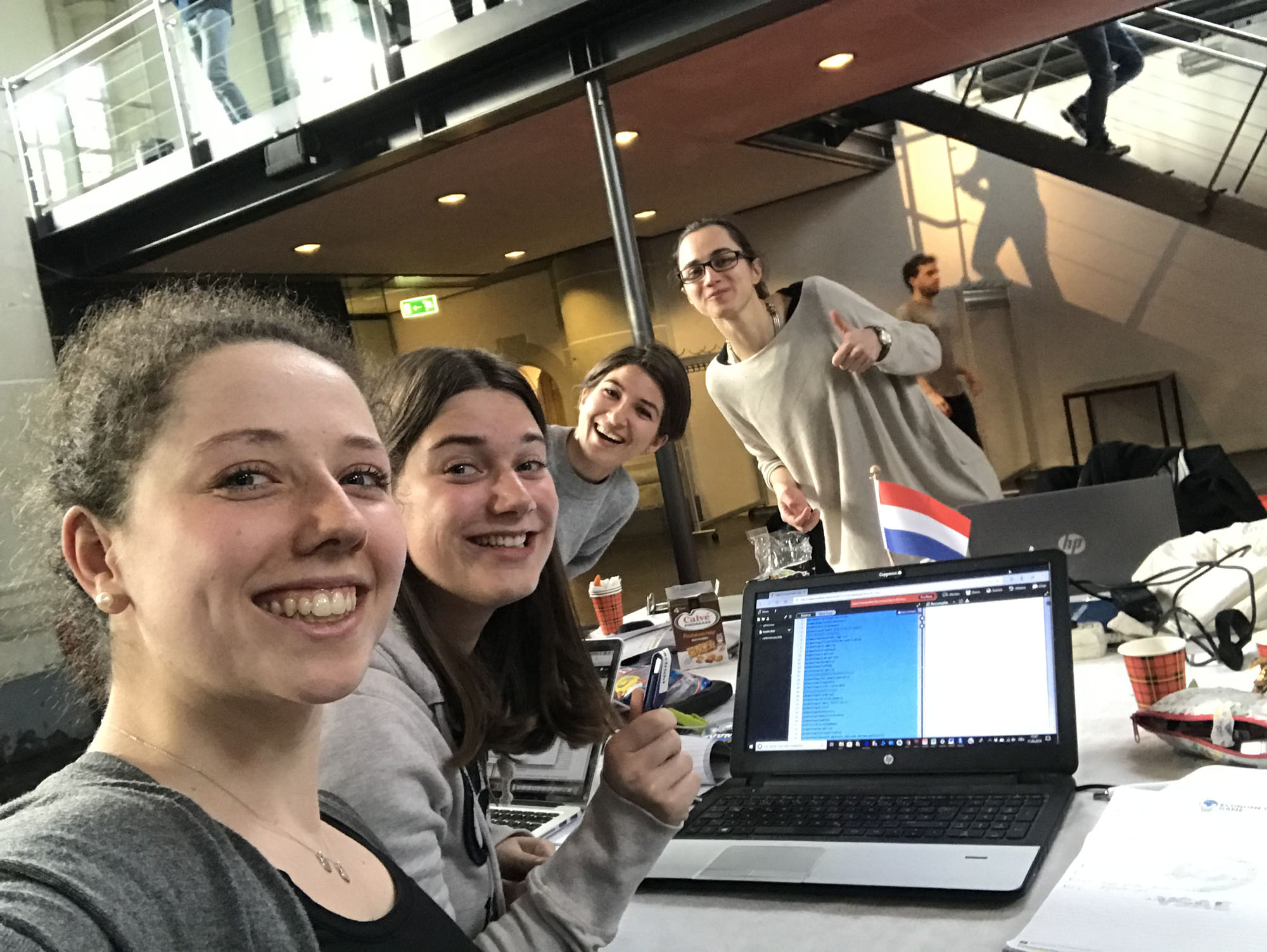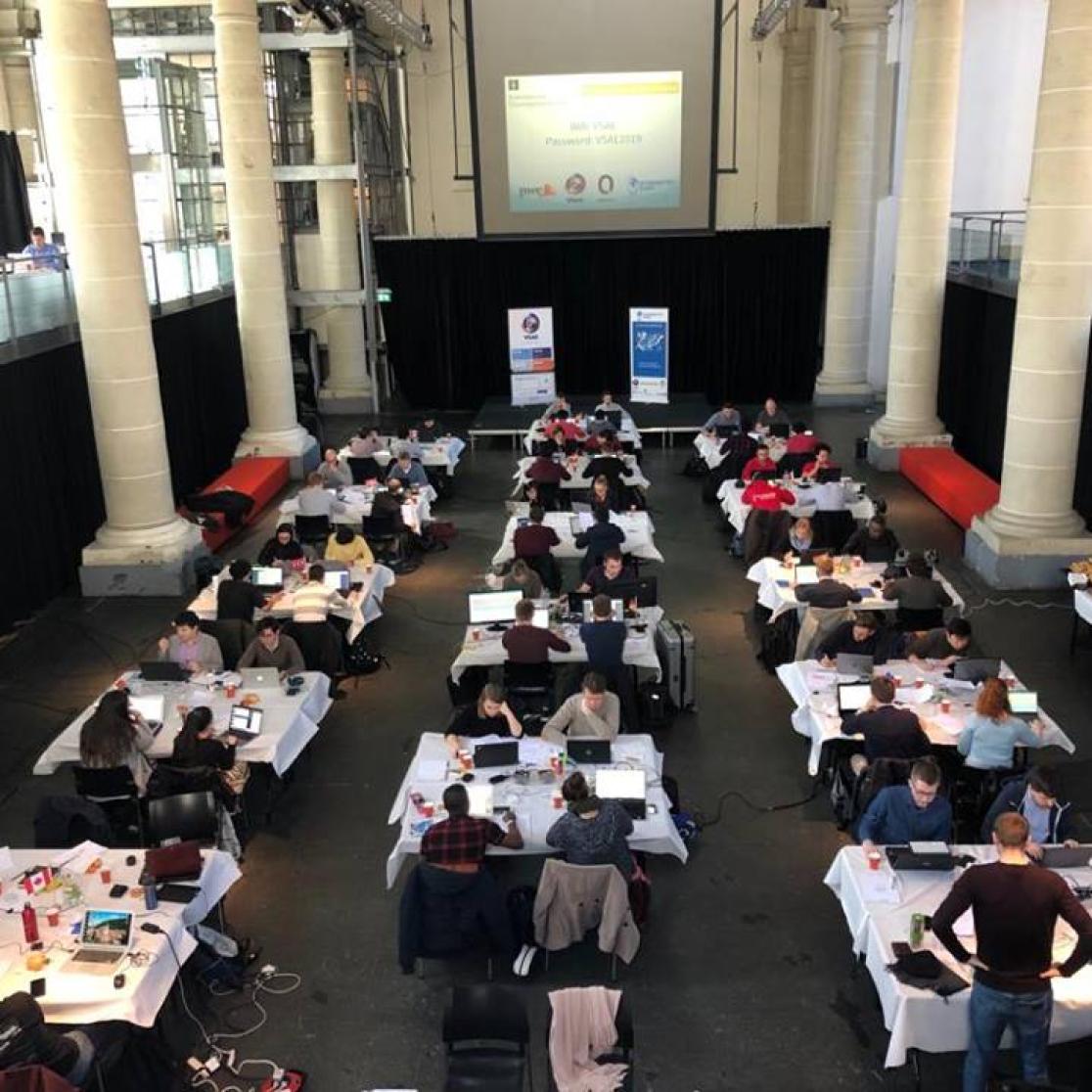A numbers game
Maastricht University’s delegation secured a silver medal in this year’s Econometric Game in Amsterdam. To appease fans frustrated by the lack of mainstream media coverage, we asked one of their number, Lea Bottmer, to tell us more.
For the 4 UM econometrics students Lea Bottmer, Anne Pieters, Caterina Schiavoni and Elisa Voisin it wasn’t that much travelling: a bit more than 2 hours on the train, enjoying the (lack of) landscape. But for some of the other 30 universities from all over the world competing in the 2019 Econometric Game in Amsterdam, it was a journey halfway around the world.
The teams from all 4 corners of the globe consisted of 4 students, 2 of whom can be PhDs, majoring in econometrics or a related subject. They had 2 days to solve 1 case study using econometric modelling, after which the 10 teams with the best solutions got an expanded case which they had to solve within 9 hours to determine the winner. A jury of 3 independent professors assessed the solutions.
This was already the 9th edition of the prestigious games. UM have won in 2011 and 2015, but have never finished in the top 3 apart from that. While dinners and city tours provided possibilities for mingling, the atmosphere remained numerically focused and competitive. “It was a bit nerdy”, Lea laughs, “It is what it is…”

A case concerning carbon and climate
After some welcoming words and presentations by, among others, a representative of Greenpeace, the case was introduced: against the backdrop of the recent signing and even more recent undermining of the Paris Climate Accord, the theme was global warming and atmospheric carbon dioxide. The teams were asked to use econometric models to see whether certain emission scenarios are congruent with a given aim for atmospheric concentrations.
“It’s not just a sum or a progression - emissions of carbon dioxide are partly absorbed by the ocean and by plants. Due to industrialisation, emissions have increased significantly over the past years, creating an imbalance in this equation, since not all can be absorbed by the ocean and land sinks. The rest ends up in the atmosphere and increases the greenhouse effect.” The teams investigate what restrictions would be necessary to achieve given temperature scenarios.
“The way we’re taught in Maastricht – being very independent, working in small groups, dividing tasks to get the best out of everyone, and so forth – it really worked for us in that situation.” Another strategy, one which UM doesn’t officially endorse, is a hangover as a remedy for nerves. “I think the winning team went clubbing the night before the final round, so it’s not only about dogged determination…”

Econometrics as a spectator sport is still developing.
Silver: a sterling result
Eventually, Lea and the UM team came second, behind the University of Melbourne and ahead of the alphabetically unassailable Aarhus University. The second place means that UM is eligible to partake in the game next year as well. “I’ll certainly follow it, yes. It was more fun than I’d expected – but also exhausting: I was completely braindead on the way back.”
And Lea is about to rack up some serious extra miles. Leading tutorials for undergraduates has given her a taste for academia, so she decided to pursue a PhD. “Writing a PhD application and compiling all the material is a lot of effort, so you might as well scale it up”, she says, economically. “I was lucky enough to receive a lot of offers, but in the end I decided for Stanford.
Lassoing numbers on the loose
But for now, she is still developing a cell-wise robust lasso estimator for her master’s thesis. It will become a way of handling outliers in a high-dimensional setting; that means there are more variables to explain the response variable than observations of all variables. “There tends to be so little data that entirely discarding observations is not expedient, so I hope my model will deal with them appropriately and, thus, estimate the relation to the response variable at hand more accurately than other algorithms.”
Lea will complete her master’s thesis in July. After a brief holiday, she will move to the US, where she will, one assumes, livestream next year’s Econometric Game whilst waving a Maastricht University scarf above her head.
Also read
-
Flour, family, and forward thinking: the evolution of Hinkel Bäckerei
In the heart of Düsseldorf, the comforting aroma of freshly baked bread has drifted through the streets for more than 130 years. Since its founding in 1891, Hinkel Bäckerei has evolved from a small neighborhood bakery into a cherished local institution.
-
Contribute to a Voice for Children in Conflict Areas
Dr Marieke Hopman and Guleid Jama are launching a new research project on the role of children in peacebuilding in conflict areas.
-
Administrative integration through agency governance The role of Frontex, the EUAA and Europol
PhD thesis by Aida Halilovic